By Gracie Ozburn
Sandi Cooper, professor in the Baylor School of Education’s Department of Curriculum & Instruction, was selected as the 2022 recipient of the E. Glenadine Gibb Achievement Award. The award honors a member of the Texas Council for Teachers of Mathematics for contributions to the improvement of math education at the state and national levels. Cooper, Ph.D., received the award at the Conference for the Advancement of Math Teaching in San Antonio in the summer.
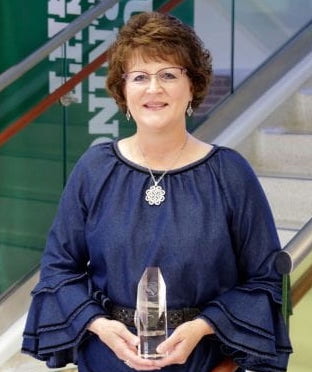
She was nominated by two Baylor colleagues — Trena Wilkerson, professor of mathematics education, and Ryann Shelton, lecturer in Baylor’s online Doctor of Education program in learning and organizational change.
“She is an outstanding colleague and offers significant leadership for the entire mathematics education community,” the nomination said. “She is an exemplary scholar, teacher, and leader.”
“It is an honor to work with [Cooper] in the Department of Curriculum & Instruction, and her vision and leadership continue to move our department and the University forward,” said Wilkerson, Ph.D. and interim chair of the Department of Curriculum & Instruction.
In 2016, Wilkerson received the award, which is named after E. Glenadine Gibb, former president of the National Council of Teachers of Mathematics and a leader in math education in Texas. Wilkerson said Gibb was known as a visionary. “I think that captures Dr. Cooper perfectly. She is a visionary!”
Cooper has been a longtime member of both the national and state math teachers organizations and served as president of Texas body 2017-2019. She was also president of the Central Texas affiliate 2012-2014.
She earned her Ph.D. in math education at Texas A&M University in 1994 and is professor of mathematics education, coordinator of mathematics education, and coordinator of the SOE’s minor in informal education. She was the founding program director of the online Ed.D. in learning and organizational change, Baylor’s largest doctoral program.
Cooper’s main research focus is related to early number development of children in PreK to second grade and the effectiveness of teachers who teach these early learners. She has applied her research to founding and leading the Math for Early Learners Academy, a summer intervention program launched in 2016 to provide positive learning experiences while developing early number concepts for children entering kindergarten and first grade. The MELA research team is developing a curriculum and assessments customized for early interventions.
In her acceptance speech at TCTM, Cooper spoke about how thankful she is for the recognition and for the hope and promise she saw in the roomful of math educators.
“I am honored,” Cooper said. “I became a math teacher in 1985, and I have loved every minute of it. We all know we are facing a crisis in education right now. When I look out and see you, I have hope. You are here spending your time learning, and you’re going to go back and take this information to help your school grow. Thank you for what you are doing in your classrooms and schools. You are really the true champions, and I am honored to be a part of this profession.”
A longer version of this story can be read on the Baylor School of Education’s Instant Impact page.
By Mary Sage
Adrianna Prado, a third-year doctoral student in Baylor School of Education’s online EdD in Learning and Organizational Change, has combined her love of education and of animals to provide meaningful service to communities as part of a therapy dog team. She said her certified therapy sheepadoodle, Stella, has been the “paws of Christ” in settings ranging from library reading events to tragedy recovery.
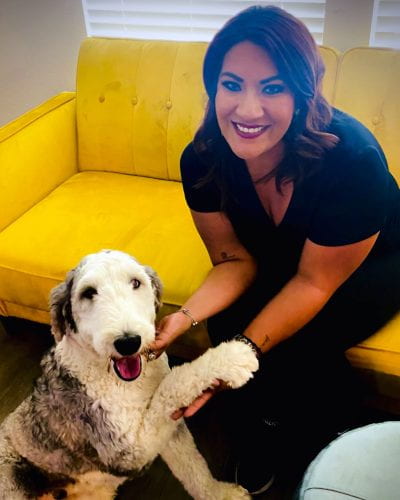
A special education specialist in San Antonio’s Northside ISD, Prado took Stella to Uvalde in the aftermath of the school shooting at Robb Elementary in late May, serving with Therapy Animals of San Antonio to offer comfort and support.
“Having had family suffering loss on account of this tragic event and grieving such loss among peer educators, it was an honor to return to Uvalde . . . to give back to the community and support through the love and compassion of Stella,” Prado said.
When Stella and Prado visited Robb Elementary, Stella was able to provide comfort and love to many, also paying their respects to the families who daily visited the last place at which they dropped off their children. The two spent time with first responders at the Uvalde EMS station, funeral home, and flower shop where people were first responders, as well as the church gathering for families of those lost.
“I learned several lessons responding to this horrific event in Uvalde, but the most important one is that humanity is not lost,” Prado said. “A common theme among my visits to the community was the overwhelming graciousness the individuals had by the many blessings offered to them from all over the world.”
Prado has always been fascinated with the research that shows the value animals have in supporting mental health, anxiety diffusion, and emotional well-being. Prado and Stella work as a team and first worked in Lubbock when Prado was a special educator in Lubbock ISD. That’s where they completed therapy training and certification and began serving the community, attending reading sessions at the library and visiting nursing homes. They also joined the “Muttley Crew,” the K-9 therapy program of Lubbock ISD.
“I feel blessed to be Stella’s handler because she has provided an opportunity for us to be the feet and paws of Christ on the ground,” Prado said.
Prado said she continues to explore research about the effectiveness of dogs in everything from emotional comfort to improving educational outcomes. She said her first experiences in Lubbock taught her that Stella helped her students build positive emotional and mental capacity.
“Stella is a gift,” Prado said. “She can reach individuals in a way that I never could do without her. Stella has saved lives, she has built families up, she has built academic bridge gaps, and she has brought peace to those who have needed it the most. Stella is a true blessing from above that allows me to continue to serve as I was put on this earth to do.”
This story was shared by Baylor Instant Impact, news from the Baylor School of Education. Go to their site to sign up for their emails.
By Julie Ivey
As a faculty member at Baylor, I have worked extensively helping children with autism, and I’m really excited about a current project that is innovative and free to children in the area. Our team is working one-on-one with children to improve balance, gait, behavior, and language. It’s a fun experience for the children because they do this while riding a mechanical horse.
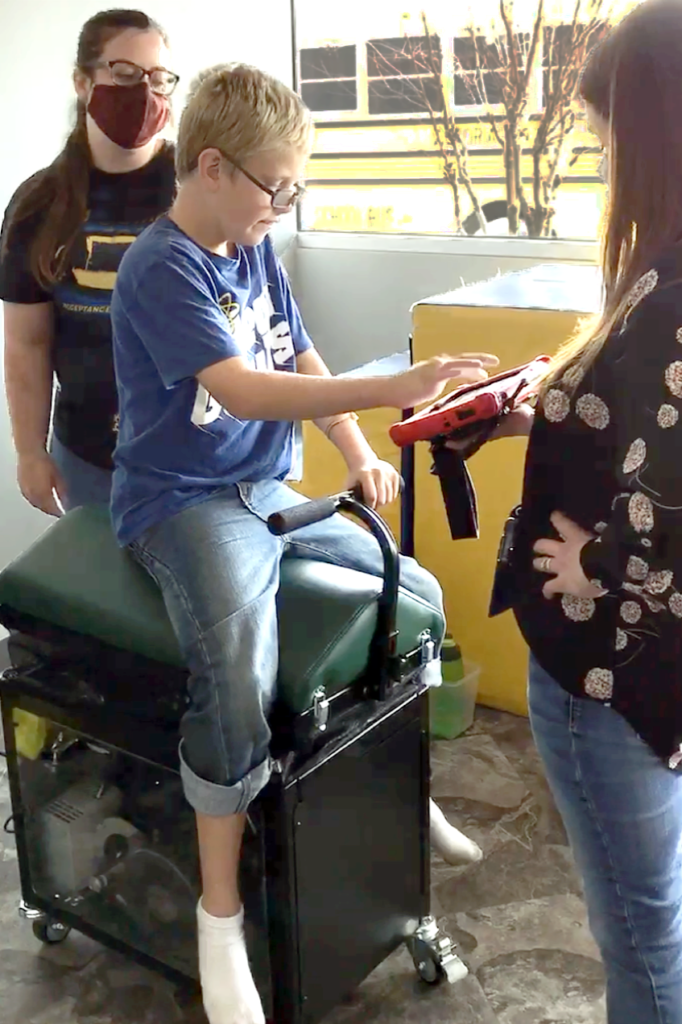
You might have heard about the therapeutic benefits of horseback riding for children with autism; these experiences are believed to stimulate neurological connections because of the motion of the horse that the child must respond to. But not every family has access to live horses. If the mechanical horse can be effective in a clinical setting staffed by trained professionals, it can offer an excellent intervention to help children.
Through a grant from the Texas Higher Education Coordinating Board, our Baylor autism team is measuring the behavioral and language effects of riding on the MiraColt mechanical horse. Because of this funding, the experience is free to children, whose parents sign up to attend two sessions per week for 15 weeks. In fact, families who complete the study will receive $150. The project is taking place at the Baylor BRIC. Be assured that the members of our interdisciplinary team have extensive experience working with children with autism and will help the children feel comfortable in a new setting.
We are recruiting children ages 6-12 who have a diagnosis of autism and may experience motor delays. To participate, children should be able to follow simple verbal instructions and have an IQ above 80. We are accepting participants on a rolling basis this fall and spring. While the study is in its early stages, our preliminary observations are promising, and parents have said they see improvements in their children.
For a little bit more information, you can read this story from the School of Education: School of Education Autism Research Team Studies Mechanical Horse Intervention
If you think your child would be interested and would qualify, we will begin with a meet-and-greet session to show you what it is all about, meet your child, and let you explore the space.
For more information, please mail me at [email protected]! We are excited to work with children and the community on this exciting, innovative project!
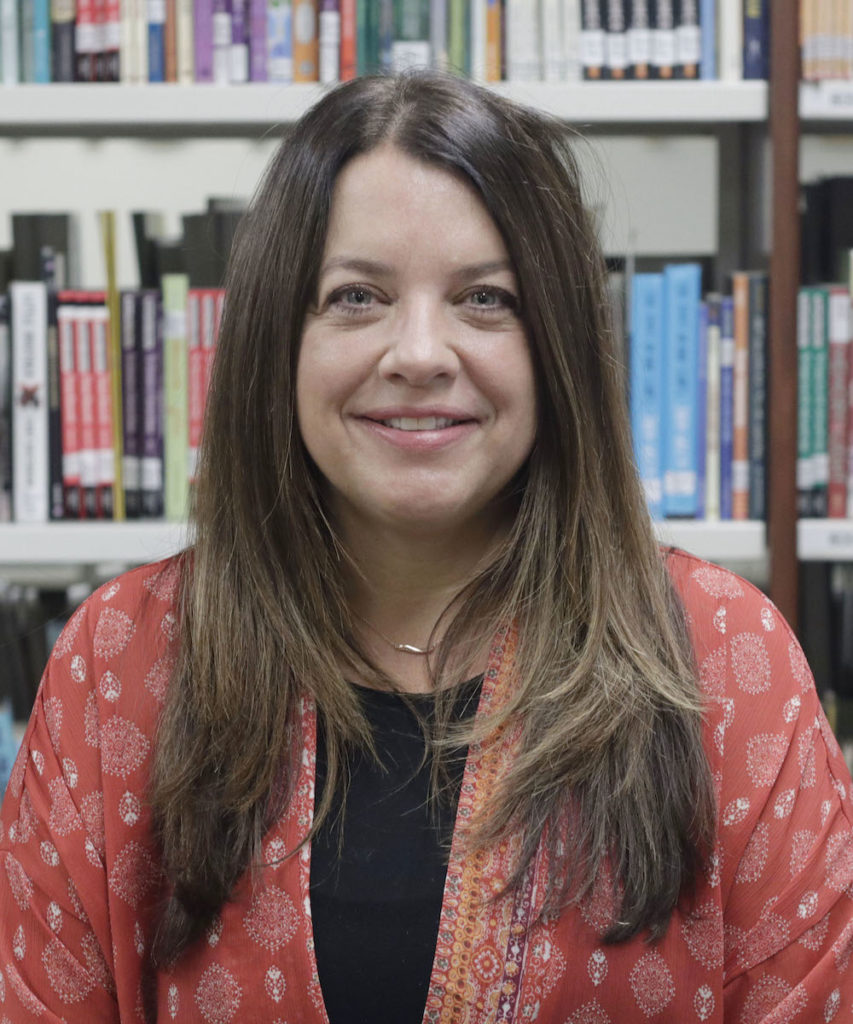
Julie Ivey, Ph.D., is a clinical professor in the Baylor University School of Education.
The Act Locally Waco blog publishes posts with a connection to these aspirations for Waco. If you are interested in writing for the Act Locally Waco Blog, please email Ferrell Foster at [email protected].
By Baylor School of Education
Baylor University’s teacher-education graduates of 2020 experienced a career launch like no other class. Their classroom internships were cut short by the global COVID pandemic, and then they entered their first year of independent teaching still in the midst of a pandemic that lasted the entire school year.
It’s a good thing the Baylor School of Education teacher-education program is designed to prepare graduates thoroughly through rigorous coursework, as well as intense faculty-guided field experiences. Baylor’s preparation is so rigorous, in fact, that 2020 teacher education majors had completed their state-required classroom experiences and already taken their certification exams when the pandemic hit.
But were they really ready? Could anything have prepared them for a first year of teaching in a pandemic? Read the reflections of four of our 2020 graduates after their first year in the classroom and find out. Spoiler alert — our graduates are amazing! Congratulations (and thank you) to them and to all teachers who are leading during these challenging times.
Emily Holland, BSEd ’20, All-Level Special Education
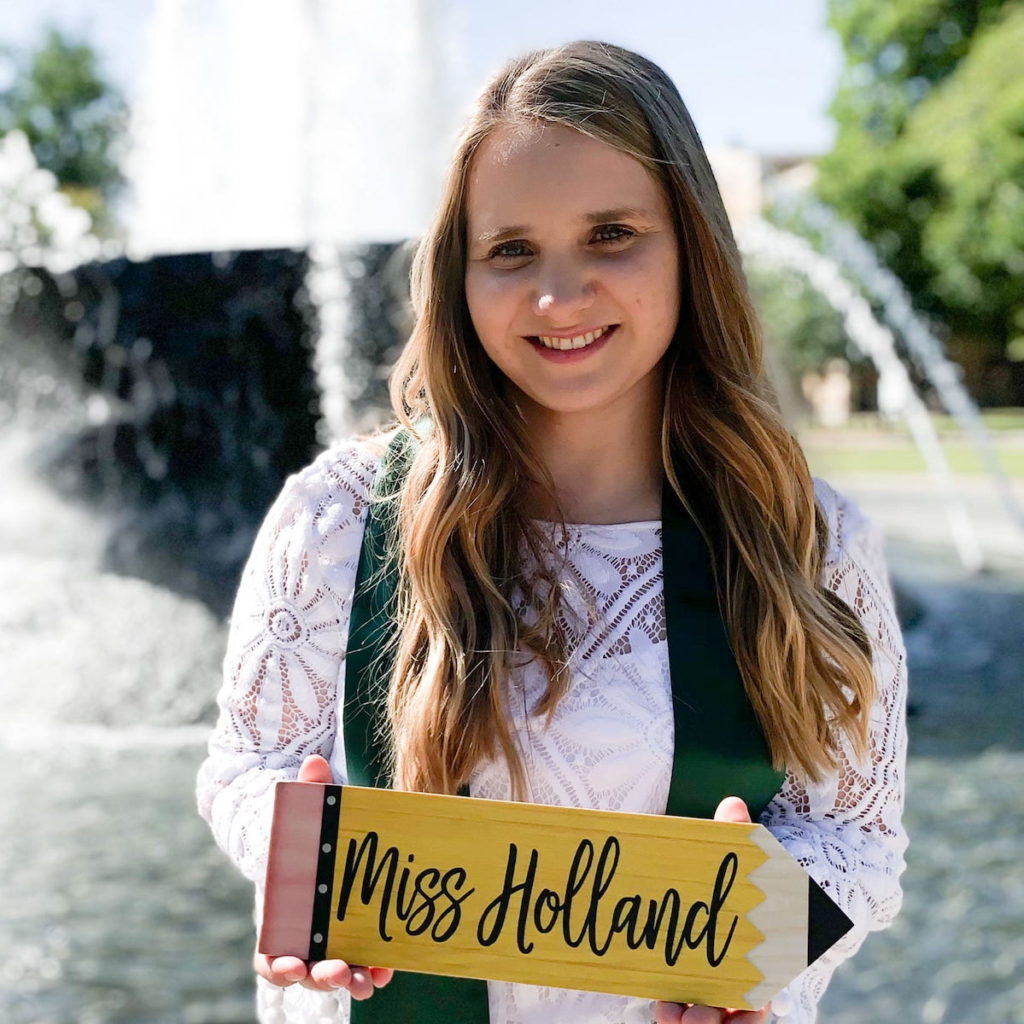
Robinson Elementary School, Robinson ISD
Functional Academics (first-third graders)
“One thing that I was not prepared for was teaching students with disabilities through a computer screen. It is already challenging enough to differentiate instruction for your kiddos in person let alone online with that barrier. . . . Most of my students ended up in my classroom, but I did have two that chose to stay home for the entire school year. I could handle the challenging behaviors, disengaged learners, or the unpredictability of each day. But that added layer of asynchronous/synchronous instruction is the main reason that I finished each day completely drained. However, this year gave educators the opportunity to learn and try so many amazing online resources that I hope we will all continue to use in the future.”
READ EMILY‘S COMPLETE REFLECTION
Augie Strauch, BSEd ’20, Secondary Social Studies
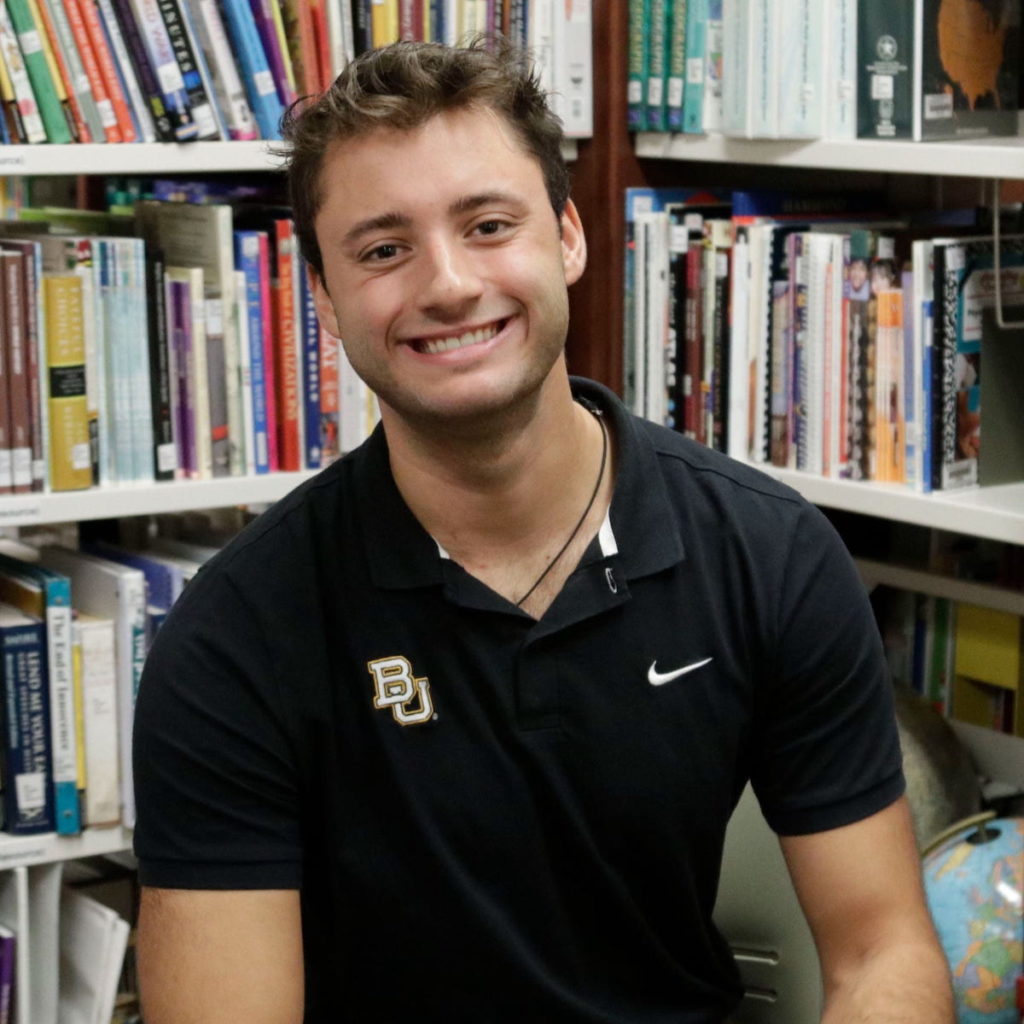
Vandergriff High School, Leander ISD
Eleventh Grade U.S. History
“I knew engagement and relationships were going to be the biggest hurdles this year, and I really felt like my time at Baylor helped prepare me to make the adjustments necessary to have a great year. . . . To keep students’ attention, I knew they needed to be a part of the lesson, not just an observer. . . . I ended up finding a collection of tools that allowed me to embed questions into my presentations that would prompt questions to the entire class while I was teaching.”
READ AUGIE’S COMPLETE REFLECTION
Sahira Kodra, BSEd ’20, Elementary Education
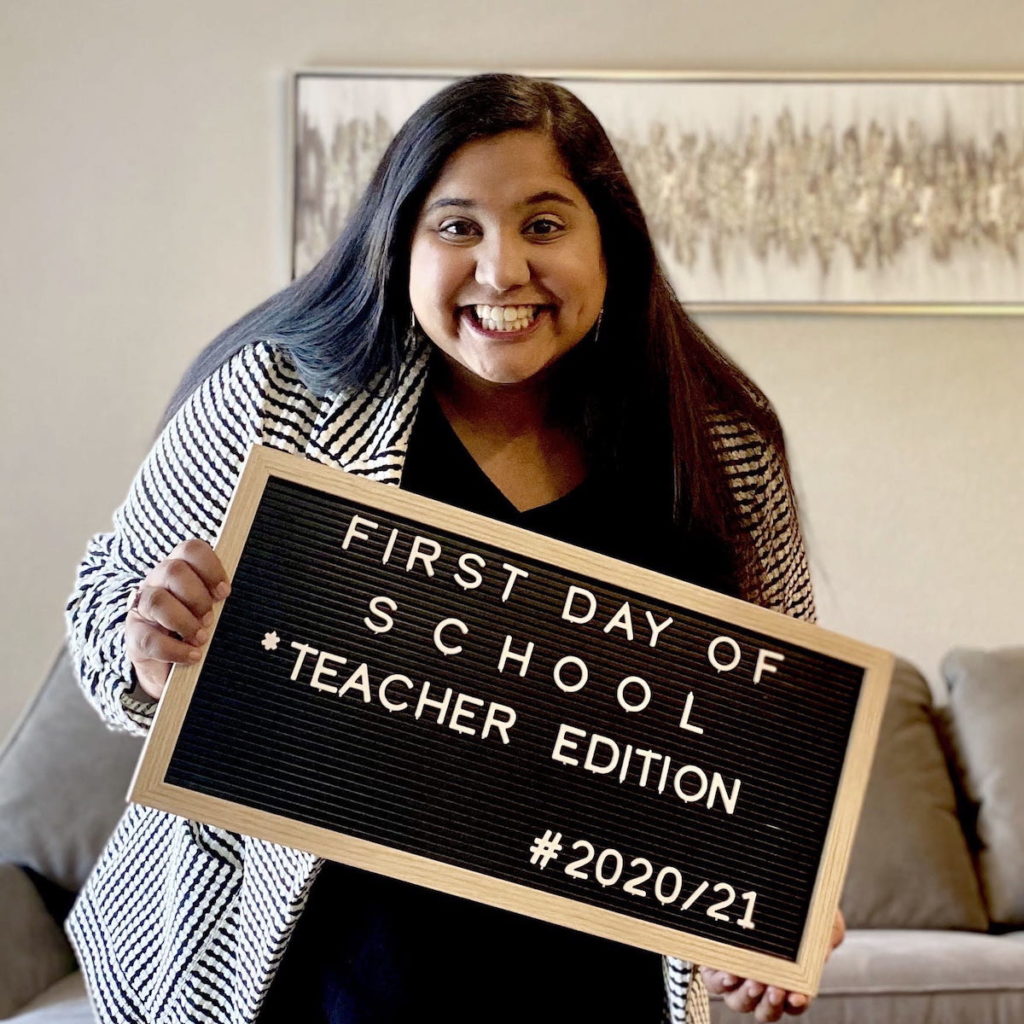
Akin Elementary, Leander ISD
Fourth Grade
“All my Baylor classes and time in the classroom prepared me for teaching, but I think nothing prepared me for teaching virtually all of my first year. Baylor also instilled a love of learning in me that I was able to pass down to my students. . . . My favorite memory was when my students and I participated in an escape room I created — thanks to Dr. Neil Shanks. We had done an in-person escape room in his methods class, I reached out and asked him a few questions. I then created a math escape room that allowed my students to go through it in teams while being virtual.”
READ SAHIRA’S COMPLETE REFLECTION
Cami Cox, BSEd ’20, Elementary Education
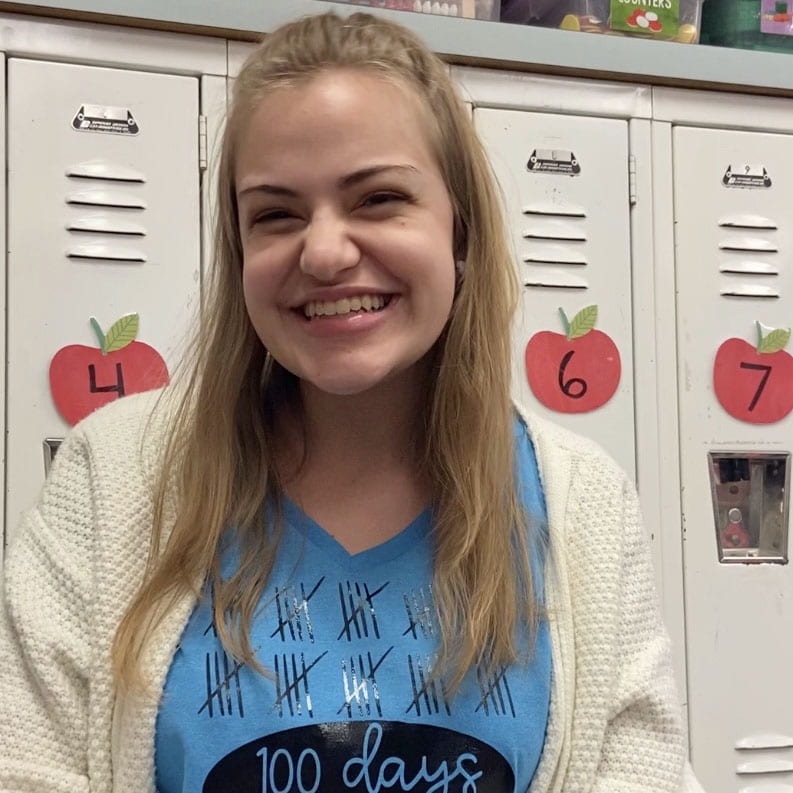
Cypress Elementary, Leander ISD
First Grade
“Going from virtual to in-person to being quarantined to the constant revolving door of students, change was the name of the game! I grew so much this year, and I will carry the lessons I learned throughout my teaching career. . . . All the different experiences I had through Baylor definitely prepared me. . . . One of my students told me, ‘Ms. Cox, I know you’re a new teacher, but I like that you change stuff up. It makes it fun!’ I’m really glad she thought so because this year was full of change!”
READ CAMI’S COMPLETE REFLECTION
For more than 100 years, Baylor educators have carried the mission and practices of the School of Education to classrooms and beyond as teachers, leaders in K12 and higher education, psychologists, academics/scholars, and more. With more than 50 full-time faculty members, the school’s growing research portfolio complements its long-standing commitment to excellence in teaching and student mentoring. Visit www.baylor.edu/SOE to learn more.
The Act Locally Waco blog publishes posts with a connection to these aspirations for Waco. If you are interested in writing for the Act Locally Waco Blog, please email Ferrell Foster at [email protected].
Editor: In honor of Women’s History Month, we are featuring interviews with local women leaders. These pieces were written by Baylor University students from the Department of Journalism, Public Relations, and New Media.
By Danielle Skinner
Brooke E. Blevins, Ph.D., associate professor of social studies education and chair of the Department of Curriculum and Instruction in the Baylor University School of Education, said Waco is continuing to grow and become a home to many.
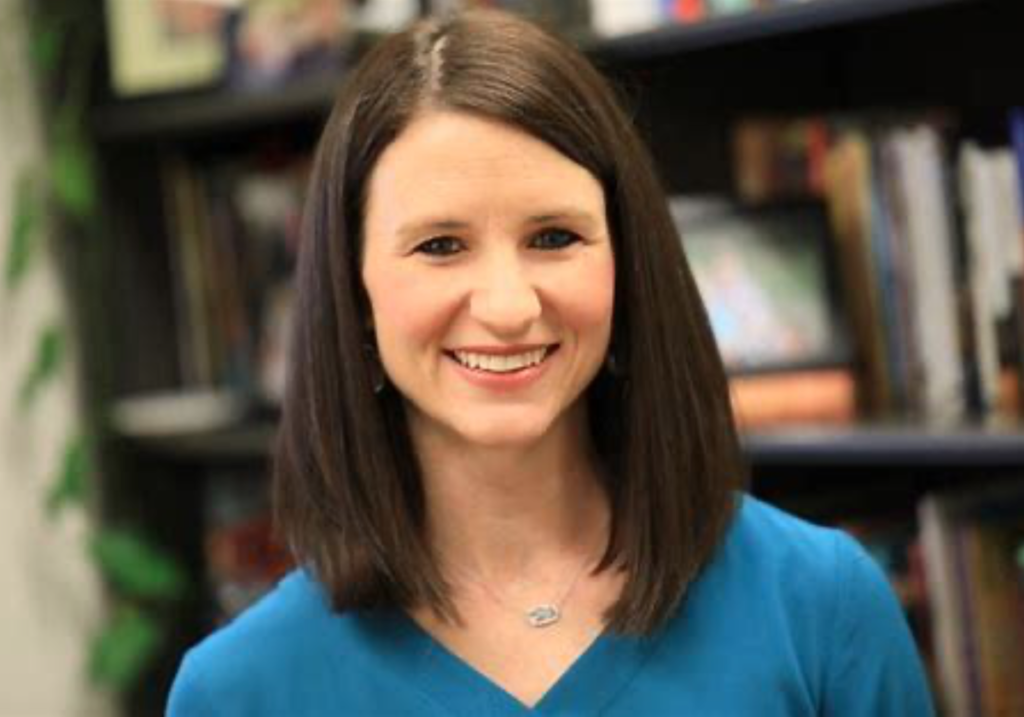
After Blevins received her Ph.D., she began looking for a job that would allow her to have a stable career and start a family. She said Waco was the perfect place to do both, as the community is small, but continuing to grow.
“A job opened up here at Baylor, I interviewed and I knew from that first interview that this was where I wanted to be,” Blevins said. “I came here in 2011 and have loved being here at Baylor, but especially Waco because it was better than I ever anticipated.”
Waco is an interesting place at first glance, Blevins said. Waco is a nice size city with access to multiple amenities and services. Most importantly, Waco is a great place to raise and start a family, as there are many fun things to do. The city is also very diverse and allows for people to grow in the community.
“Waco has a lot of really great people in it,” Blevins said. “I love how Waco is being revitalized in a lot of different ways, not just economically but in terms of stories and the narratives being told in this community.”
Blevins said it is important to look into the history of places you are visiting, especially with a place like Waco. All towns experience good and bad times, and she believes Waco continues to reflect and grow as a community.
Waco has a very interesting and challenging history, Blevins said. No matter where you are, you should know and understand your past. There is plenty of encouragement to learn more about Waco, its history, and how it shapes the Waco community today.
“Waco is in the process of becoming something greater,” Blevins said. Waco is not forgetting its past, but it is also “looking forward to seeing what we can do in the future, which seems very exciting.”
Blevins said she is happy to see progress Waco has made especially in the last 10 years. She said that she is noticing that the city is more of a destination spot where the community can come together as one.
Many initiatives are in process to improve Waco, such as the redevelopment of downtown, Chip and Joanna Gaines helping reshape the look of Waco, and how Baylor University has moved to care for its community and the people residing in the city, are ways that Waco is improving, Blevins said.
There will always be problems no matter where you are, but there are organizations like Prosper Waco that are helping out with really big problems and how Waco can tackle them, which Blevins believes is a great way to show what Waco is becoming.
“This is a time for change for the city,” Blevins said. “Waco is in a place of becoming who it is meant to be.”
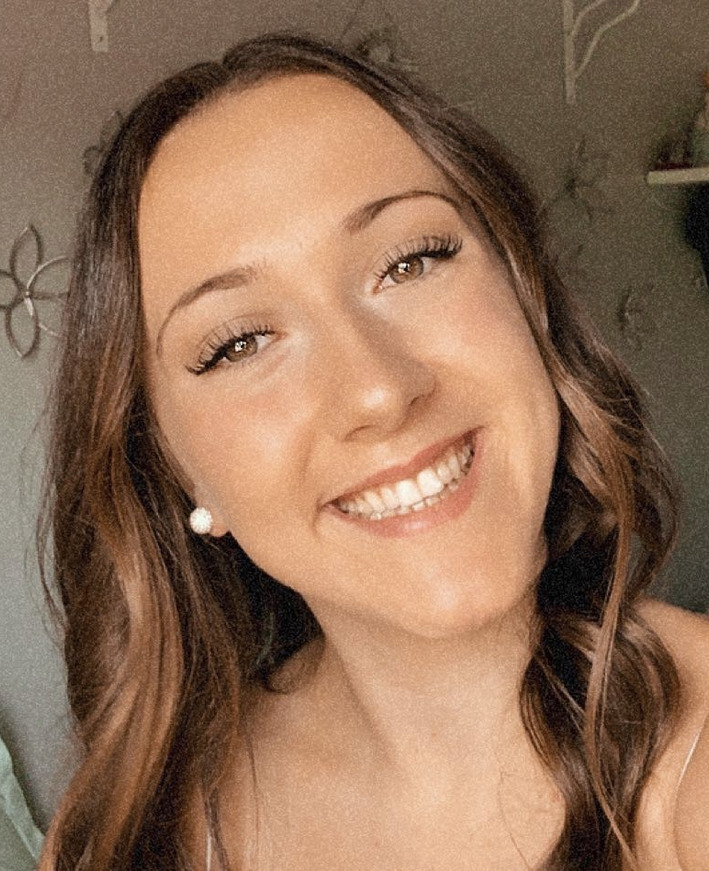
Danielle Skinner is a freshman at Baylor University majoring in journalism and pre-law. She is from Canada.
The Act Locally Waco blog publishes posts with a connection to these aspirations for Waco. If you are interested in writing for the Act Locally Waco Blog, please email Ferrell Foster at [email protected].
In honor of Black History Month, we are featuring interviews with local Black community leaders. These pieces were written by Baylor University students from the Department of Journalism, Public Relations, and New Media. The students asked questions about what the leaders love about Waco, and we are excited to share their responses with you this month.
By Lauren Combs
Lakia Scott, assistant professor of curriculum and instruction with Baylor University’s School of Education, pursues research alongside teaching undergraduate and graduate students. She decided to dedicate her research to improve urban literacy.
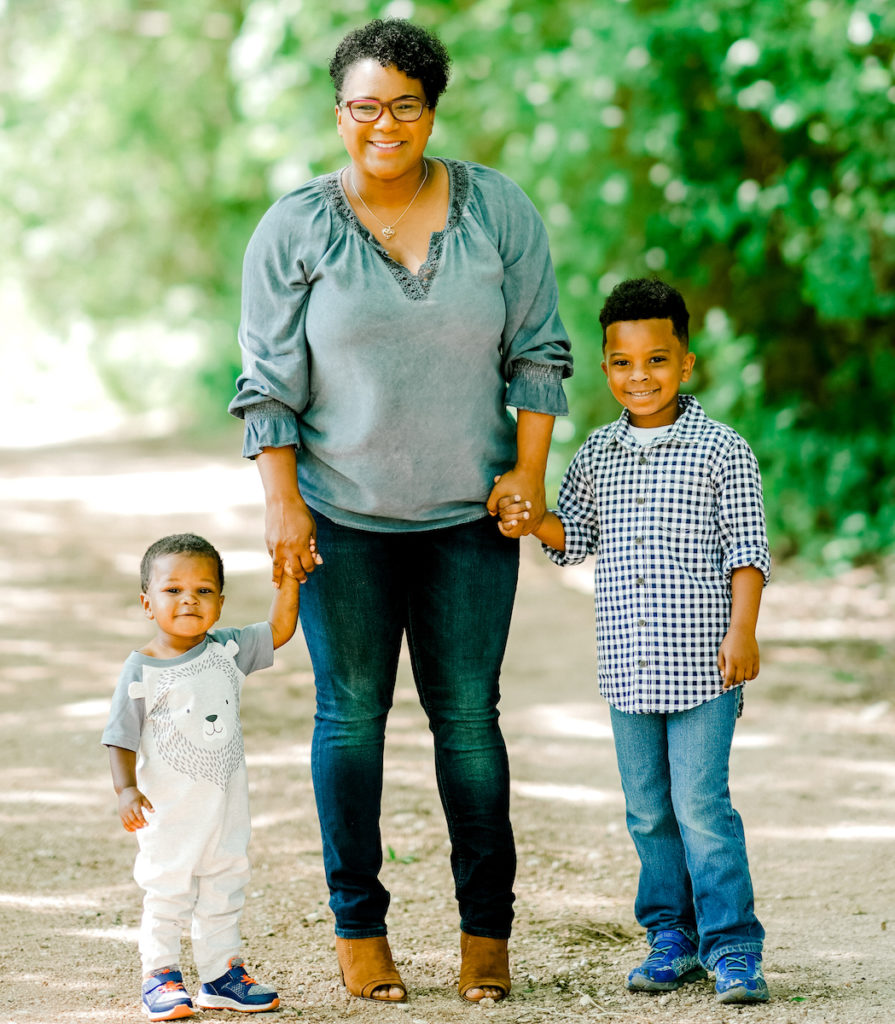
“My research for the last three years has been on the Freedom Schools program,” Scott said, “and that is a summer literacy initiative that is sponsored by the Children’s Defense Fund that helps to lessen summer reading loss.”
Scott said students who don’t have access to resources like summer enrichment programs or tutoring opportunities typically fall six to nine months behind before returning to school in the fall.
“They’re actually returning to school as if they are in the mid-year of their previous academic school year,” Scott said. The program she created and continues in partnership with the CDF model seeks to “reduce that learning loss, that summer reading gap, so that students can go back to school in a better frame of mind academically.”
Scott said the Freedom Schools program uses culturally relevant texts at all levels that are developmentally appropriate to increase students’ exposure to reading. The students have three different opportunities to engage with texts throughout the day.
“They’ve become more fluent readers. They also build comprehension skills because they’re reading things they really, really care about, and that makes all the difference,” Scott said. “Whereas a sixth grader may come to me on a fluent reading level of fourth grade or right under fifth grade, they may leave Freedom Schools in a 30-day time span over the course of two months at a seventh grade level.”
Scott said the students who participate in this program are also positively impacted because they are appreciative of reading, academically motivated, and likely to become leaders in their classrooms and communities.
“I know reading is only one of those core subjects taught,” Scott said, “but reading is seen in every other subject. And so if we don’t equip our students with those foundational literacy skills, it has long-term impacts.”
Waco ISD has a reading proficiency of 30%, which means 30% of the students in the district are reading at or above grade level. “My goal, if I were able to cast this larger vision for the City of Waco, would be to see that reading percentage increase exponentially to the 90 percentage range,” Scott said.
Scott said the community has already been doing a lot to help achieve this goal, but she would like to continue to see community members making their presence known in the schools with opportunities like mentoring programs. She also encourages sororities, fraternities and other service-based organizations to continue being advocates in school settings. However, Scott also said there are other, less direct way to increase the literacy levels.
“Something that I think is really overlooked is attending school board meetings. The presence of community members at school board meetings is powerful because so much happens there— the ways budgets are allocated, the ways resources are allocated— all of those things are talked about and discussed and voted upon at the school board level,” Scott said.
Scott even encouraged community members to run for school board positions and community leadership opportunities.
“If we are really serious about making change in ways that are going to positively affect the students that are in the community,” Scott said, “we need to be more vocal about it.”
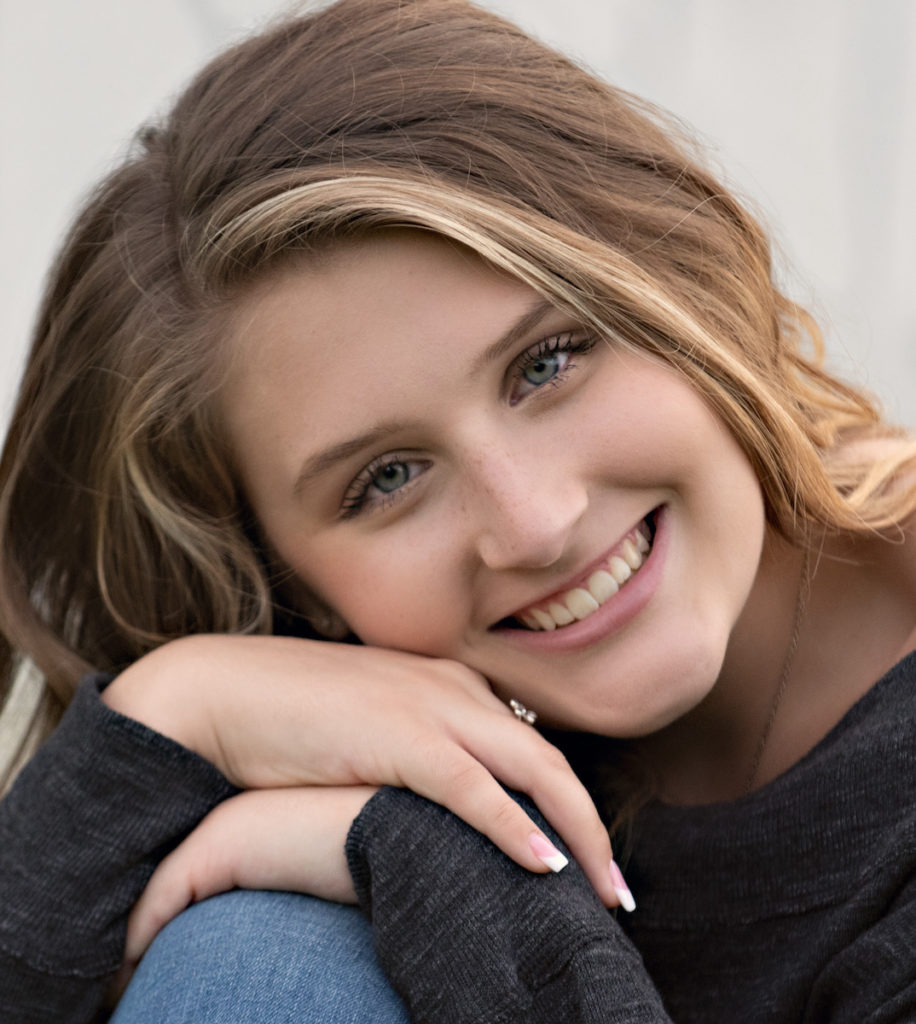
Lauren Combs is a Baylor University sophomore from Virginia majoring in journalism who hopes to pursue magazine writing or public relations for nonprofits or ministries.
The Act Locally Waco blog publishes posts with a connection to these aspirations for Waco. If you are interested in writing for the Act Locally Waco Blog, please email Ferrell Foster at [email protected].
